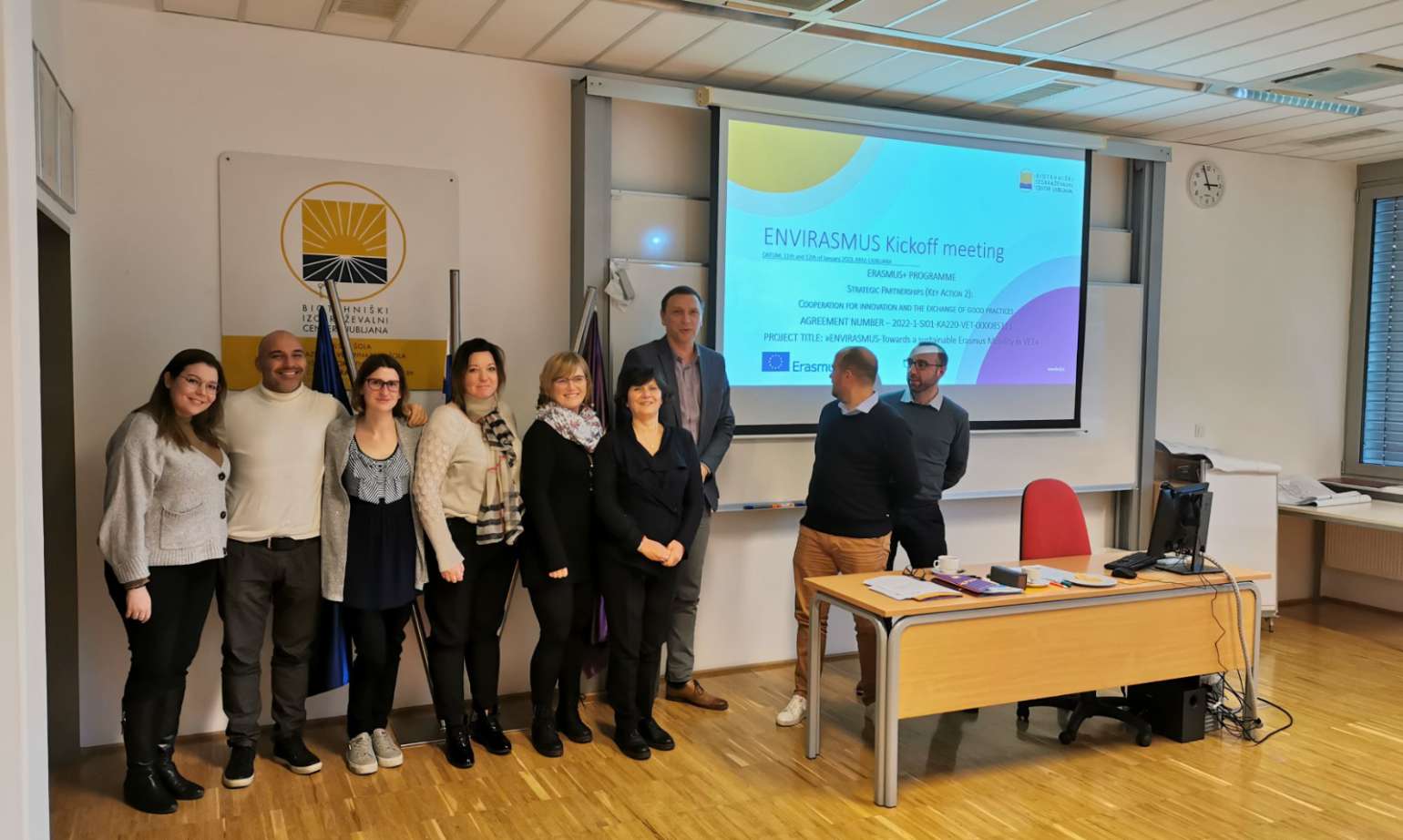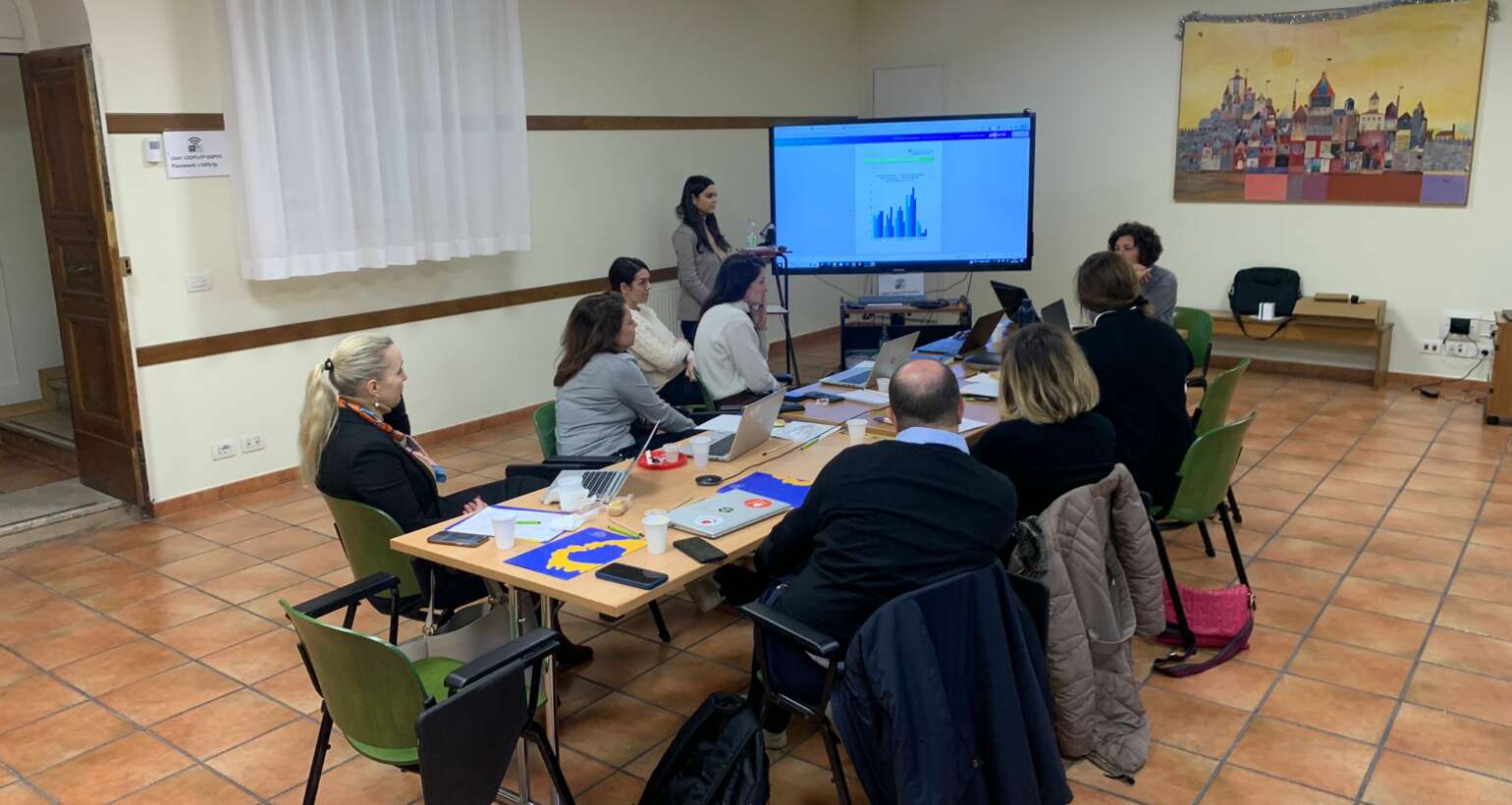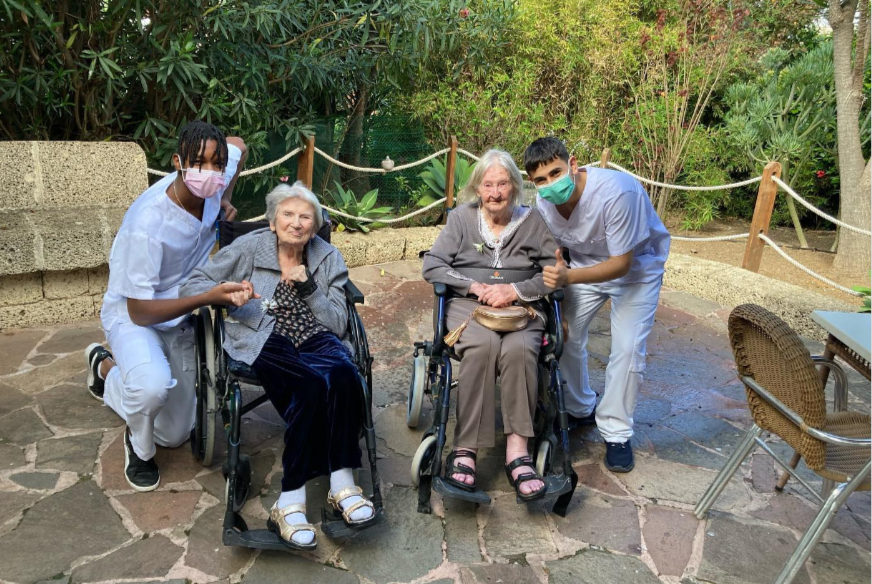The difference between animals and humans is that animals change themselves for the environment, but humans change the environment for themselves.” – Ayn Rand
The ENVIRASMUS project not only holds significant benefits for students participating in international mobilities but also offers valuable advantages for adult education. By integrating environmental sustainability with Erasmus+ mobilities, the project contributes to the development of knowledge, skills, and attitudes towards climate change and sustainable development, fostering environmental awareness among all involved and interested – students, adult learners, VET mobility project managers, policy makers, stakeholders, to mention some.
The project is a part of the Green Erasmus+ program, which places emphasis on implementing environmentally friendly practices and addressing sustainable development concerns. Its primary objective is to enhance knowledge, skills, and attitudes regarding climate change and sustainable development.
Consortium comprise partner organizations from Slovenia, Spain, Italy, France, and Sweden:
BIOTECHNICAL EDUCATIONAL CENTRE LJUBLJANA (BIC LJUBLJANA) from Slovenia leads the consortium: one of the ten biggest school centres in Slovenia. It is divided into four units: General Upper Secondary School and Veterinary Technician School, School of Food Processing, Vocational College, and Inter-Company Training Centre. The school centre provides in-company training for professional workers in companies, food and catering establishments. It also runs confectionary, bakery, cookery, veterinary and computer courses, as well as culinary workshops for children. The quality of education and performance is our main mission, which is why we provide our students and adult learners with the best educational conditions to achieve high-quality learning outcomes.
LULA CONSULTING is an Italian organization that provides support to VET Schools/Institutes/Educational centres in participating and organising Erasmus+ KA1 VET learners and staff mobilities and Erasmus+ KA2 strategic partnerships. . With regard to mobility projects, the staff of Lula Consulting supports its partners by providing tutoring and monitoring, communication and digital tools in order to facilitating access to learners’ mobility experiences, including recent graduates both short-term and long-term (ErasmusPro). The aim of Lula Consulting is to ensure the widest participation in mobilities through a personalised support designed to meet the individual needs of each learner. These activities are strongly based on sustainability, environmental impact and social inclusion.
C.I.O.F.S. FORMAZIONE PROFESSIONALE (https://www.ciofs-fp.org/) from Italy is a non-profit association. It pays great attention to the Labour World and the Vocational Training. CIOFS-FP operates in 11 Italian Regions through its Local Boards with about 60 Operative Centres. Many of them supply training on Green economy and environmental issues. The Association covers a high number of activities such as: vocational training, orienting, services to local enterprises and particular needs. It provides training, workshops, transnational exchanges, research and work-oriented services. Adolescents, youths, women, unemployed people, migrants, dropouts, are the beneficiaries of such activities. CIOFS-FP provides a comprehensive range of services to create pathways to training, education and/or employment makes researches, workshops, development and implementation of projects and services develops and manages national and European projects
The SKILLED CRAFT CHAMBER OF PAYS DE LA LOIRE (CMA PDL) from France provides guidance and support for the development of learners and craft businesses. The CMA Pays de la Loire manages 5 Vocational Training centers (URMAs in each department) with more than 7 200 learners. The URMA aims to strengthen qualifications and skills, initiate innovative teaching methods in the craft industry within the region by offering training courses (such as CAP; CTM, BP, Licence pro, bac pro, BTS, BTM…) in a wide variety of sectors such as bakery, pastry, delicatessen, hairdressing, mechanics, construction, stained glass cabinet making, accountancy… In Total, around 700 staff are working in our Vocational and Education Training centers managed by CMA Pays de la Loire (Teachers, administrative staff, projects managers…). The CMA Pays de la Loire offers work-linked training courses aimed at developing skills and thus facilitate professional integration in the craft sector. This regional campus is at the service of employment and integration, business development, as well as the economical dynamic of the territories
MEDITERRÁNEO ERASMUS INTERNATIONAL CENTER (MEIC) is a Spanish SME with a clear international vocation with focus on international programmes, and efforts to constantly engage with the latest policies at a European and international level. MEIC is an agency for transnational mobility and a host institution that promotes the design and implementation of initiatives funded in the field of European policies for development, innovation, training, research, and territorial cooperation. They encourage transnational cooperation and the mobility of students and teachers in different areas, including health, environment, renewable technologies, and HORECA sectors. In MEIC they welcome staff, teachers, and students from all over Europe.
DROTTNING BLANKAS GYMNASIESKOLA AB from Sweden is a consortium of 30 upper secondary schools that provide education to more than 9000 students in all the national programmes. All schools are conveniently found in each city’s centre, near a commuting point which means that we are accessible geographically to students and employees but also, to local organisations, businesses and companies found in a particular region. It facilitates the approach where local networking and collaboration is a vital component to strenghten students training and education and promote life-long learning. It provides programmes in both theoretical and vocational training: Handicrafts; Hair-and make up stylists, Hair dressing, Business and Administration, Social and natural sciences, Health and social care, Hotel and Tourism, Child and Recreation and many more. It offers also social sciences programme, economics and arts.
Project motivation
In line with the EU Council’s proposal for learning for environmental sustainability, the ENVIRASMUS project responds to the climate emergency and planetary crisis, recognizing the crucial role of education and training in addressing these challenges. Learners of all ages have a possibility to actively participate in ENVIRASMUS activities to gain a deeper understanding of their individual environmental impact and are equipped with tools and guidance to make environmentally friendly changes in their daily activities.
The project aims to standardize information on sustainable development for Erasmus VET participants, empowering learners to apply examples of good environmental and consumer practices to their daily lives. Through interactive workshops, supportive tools, and materials that will be available on the ENVIRASMUS platform and app, participants are made aware of the impact of their carbon footprint and are motivated to implement individual changes to reduce their environmental impact.
Teachers and mobility project leaders also play a crucial role in promoting environmental goals and influencing participants’ experiences abroad. Their active involvement in the project fosters the social changes necessary for transforming our world into a greener one. Additionally, host organizations in various European destinations contribute to sustainable lifestyles by providing practical recommendations and useful tips at the local level, creating a supportive network for sustainable practices.

Project goals
By equipping important adult stakeholders with accessible tools, information, and materials, the ENVIRASMUS project takes a significant step towards a greener world. This approach facilitates knowledge exchange between teachers, mobility project leaders, students, and other participants in education, including adults, resulting in a collective effort to combat climate change and promote sustainable behaviours.
As the project progresses, the research conducted will shed light on the impact of informing participants about their individual environmental footprint and providing them with tools and advice for more environmentally friendly practices. Through pre- and post-mobility surveys, the project aims to analyse changes in environmentally conscious behaviour, providing valuable insights into the effectiveness of the project’s initiatives.
The sustainable travel platform will be accessible to the general public without requiring any login credentials. It will provide comprehensive information and practical tips on sustainable travel practices. Individuals who are interested in adopting environmentally friendly travel habits will have the opportunity to calculate their carbon footprint using the platform’s tools. Additionally, downloadable materials for workshops on sustainable travel will be available, enabling educators to incorporate them into their teaching and learning processes.
For the conclusion
The project is currently in its initial phase, focusing on an in-depth examination of participants’ behavior and daily activities related to environmental sustainability. To gather comprehensive data, learners from all six partner organizations participate in a standardized survey prior to their departure to their respective host countries. The analysis of these findings holds significant importance, and we are eager to share our results with the wider audience, including those present here.
In summary, the ENVIRASMUS project not only benefits students but also offers adult learners the opportunity to deepen their understanding of environmental sustainability and actively contribute to a greener world. Through its comprehensive approach, the project fosters knowledge sharing, behaviour change, and the promotion of sustainable practices among adult education stakeholders as well.
Boštjan Ozimek is the project coordinator of BIC Ljubljana and coordinator of project ENVIRASMUS. Polonca Korez is the project officer for ENVIRASMUS project at BIC Ljubljana.




